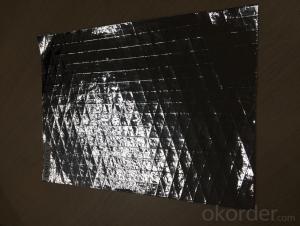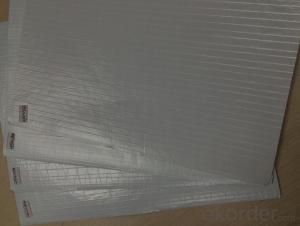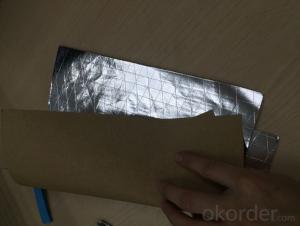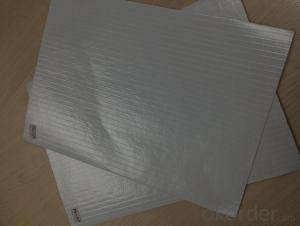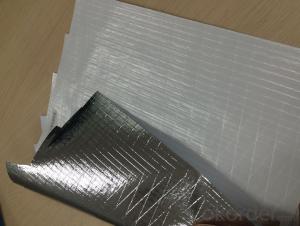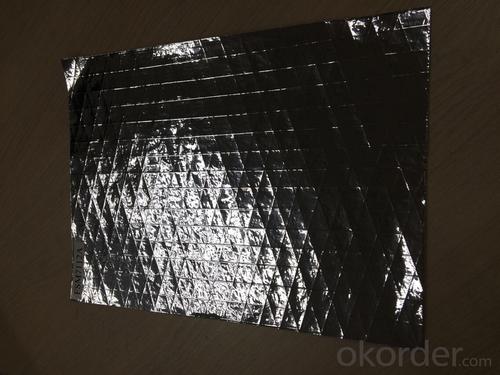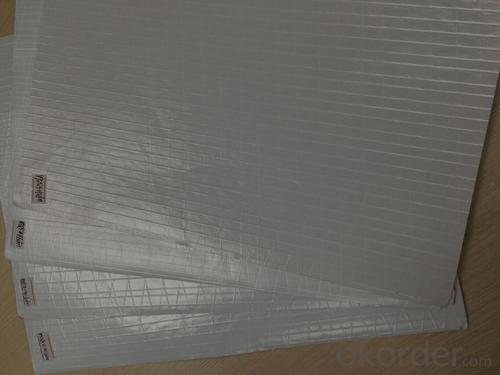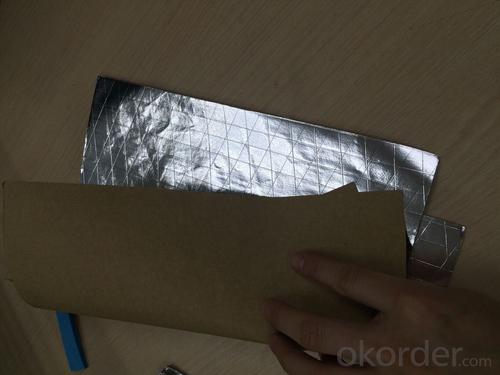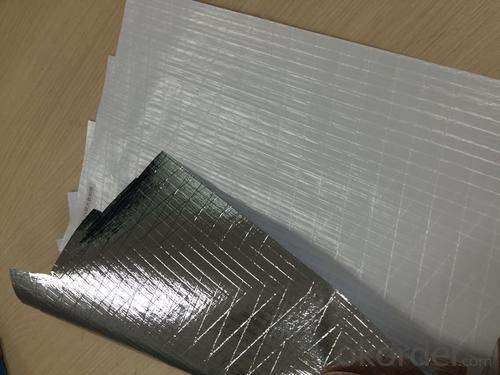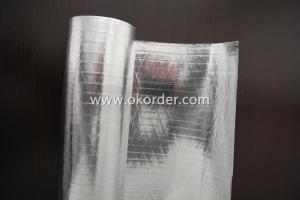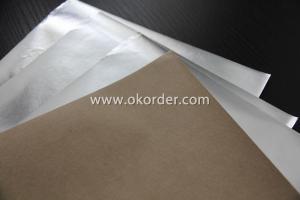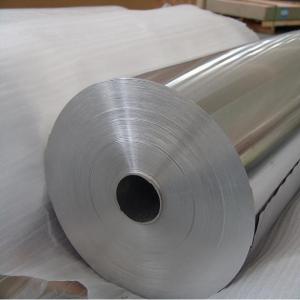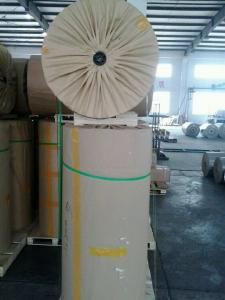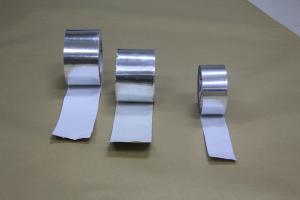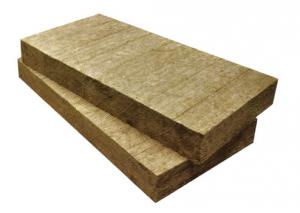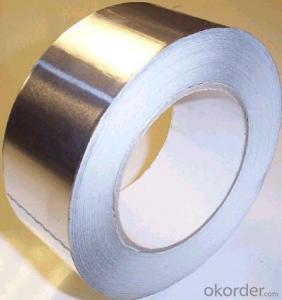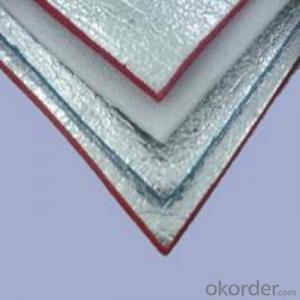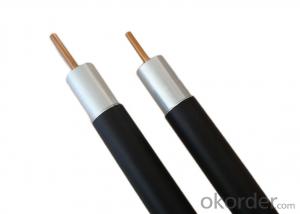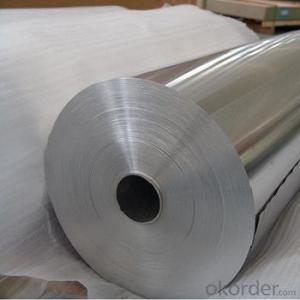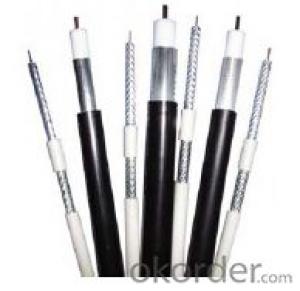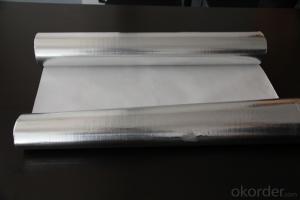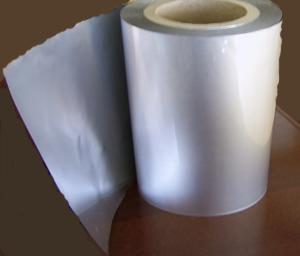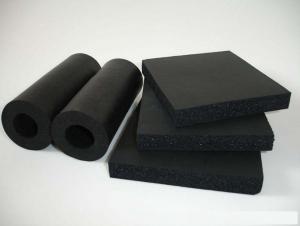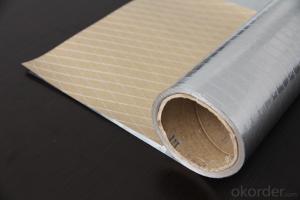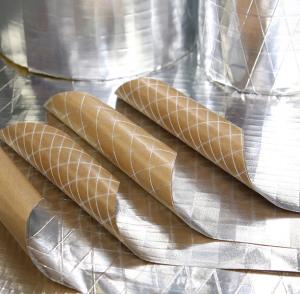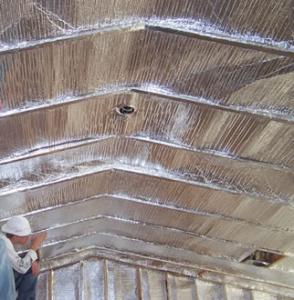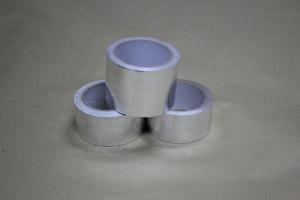Reflective Aluminum Foil Insulation Roofing Heat Insulation Aluminium Facing
- Loading Port:
- China main port
- Payment Terms:
- TT or LC
- Min Order Qty:
- 200 m²
- Supply Capability:
- 1000000 m²/month
OKorder Service Pledge
OKorder Financial Service
You Might Also Like
1.Structure of Aluminium Foil Facing Insulation Description:
Aluminium Foil Facing Insulation provides excellent insulation: reflects up to 97% of radiant energy in addition to resisting other types of heat transfer from conduction,convection,and radiation.The side of metalized PET/Alu forms an effective barrier against moisture,air currents and vapors.It is economical solution in many field. It is a light duty, Eco grade D/S foil Insulation. It is ideally used as sarking and insulation under roofs , in walls behind cladding or under timber floors , for residential and commercial building. Combining with glasswool or foam insulation, it is excellent as a vapor barrier for air-conditioning ducts, pipes and vessels.
2.Main Features of the Aluminium Foil Facing Insulation:
High heat reflection & low thermal conductivity
Heat preservation & energy saving
Moisture barrier & waterproof
Low flammability
Strong, durable & corrosion resistance
Light weight & easy to install
Clean, safe and fibre free & no odour and toxicity, totally environmental-friendly
No mildew growth & no rodent and insect nesting
3. Aluminium Foil Facing Insulation Images
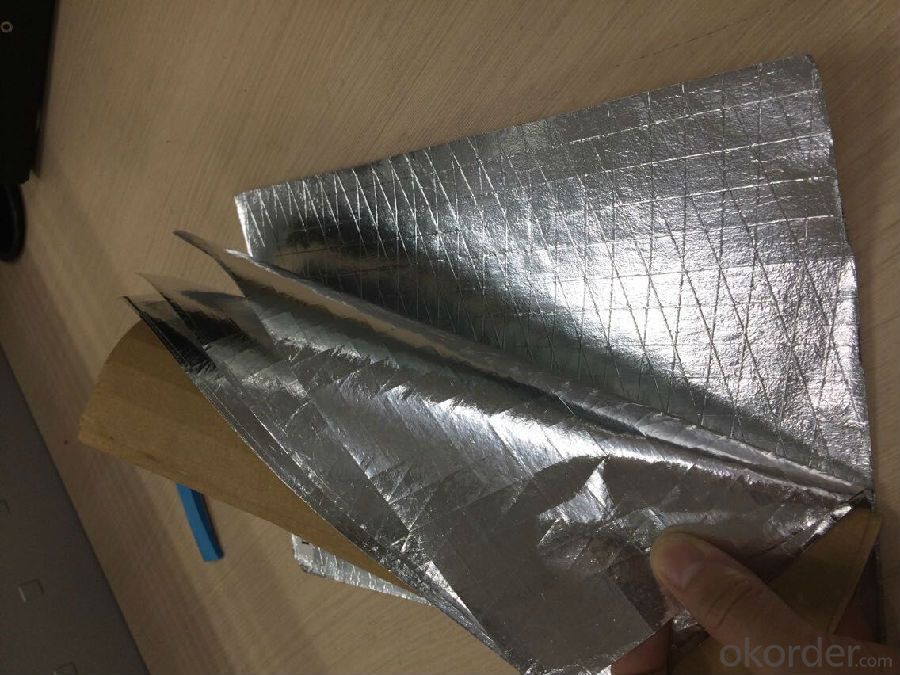
4. Aluminium Foil Facing Insulation Specification
a) Foil: 7μm
b) 2-way scrim: 12.5 x 12.5mm space
c) Polyethylene
d) Kraft: 50gsm, natural
2) FSK716B:
a) Foil: 7μm
b) 2-way scrim: 12.5 x 12.5mm space
c) Polyethylene
d) Kraft: 60gsm, natural
3) Roll width: 1.0, 1.2, 1.25, 1.30m
4) Roll length: 60, 120, 300, 500, 1600, 2750m
Physucal Properties | Test Method | Values (English) | Values(Metric) |
Basis Weight | Scale | 25.5lbs/1000 ft2 | 125g/m2 |
Tensile Strength | GB/T12914-1991 | 22.5lbs/inch(MD) | 3.79 kn/m(MD) |
13.9lbs/inch(XD) | 2.31 kn/m(XD) | ||
Bursting Strength | GB/T454-2002 | 36 lbs/psi | 248 kpa |
Water-resitant | 23 °C 24h | No phenomenon of layered | No phenomenon of layered |
Low-temperature resistant | -40 °C 1h | No phenomenon of layered | No phenomenon of layered |
High temperature resistant | 116 °C 4h | No leakage phenomenon | No leakage phenomenon |
Thickness | Micrometer | 0.0058 inch | 150 micron |
5.FAQ
We have organized several common questions for our clients,may help you sincerely:
①How about your company?
A world class manufacturer & supplier of castings forging in carbon steel and alloy steel,is one of the large-scale professional investment casting production bases in China,consisting of both casting foundry forging and machining factory. Annually more than 8000 tons Precision casting and forging parts are exported to markets in Europe
,America and Japan. OEM casting and forging service available according to customer’s requirements.
②How to guarantee the quality of the products?
We have established the international advanced quality management system,every link from raw material to final product we have strict quality test;We resolutely put an end to unqualified products flowing into the market. At the same time, we will provide necessary follow-up service assurance.
③How long can we receive the product after purchase?
The purchase of product within three working days, We will arrange the factory delivery as soon as possible. The pecific time of receiving is related to the state and position of customers.Commonly 7 to 10 working days can be served.
- Q: Is it safe to use aluminum foil as a facing material for making soups or stews?
- <p>Yes, you can use aluminum foil facing to make soup or stew. Aluminum foil is a common material used in cooking and is safe for contact with food at normal cooking temperatures. It is often used to cover pots to retain heat and moisture, or to create packets for cooking food directly on the heat source. However, it's important to ensure that the foil does not tear or come into direct contact with the heat source, as this could cause it to burn and potentially release aluminum into the food. Always follow safety guidelines and use foil responsibly in cooking.</p>
- Q: What are the alternatives to using aluminum foil facing in various applications?
- <p>Yes, there are several substitutes for aluminum foil facing. These include: 1) Heavy-duty aluminum foil, which can be used for a more durable barrier. 2) Parchment paper, which is great for baking and resists tearing. 3) Silicone baking mats, reusable and non-stick. 4) Wax paper, useful for wrapping and storage but not for high heat. 5) Plastic wrap, suitable for food storage but not for cooking. 6) Tin foil, a cheaper alternative but less heat resistant. Always consider the specific needs of your application when choosing a substitute.</p>
- Q: This question asks for the steps to prepare aluminum foil for cooking, specifically how to set it up.
- <p>To prepare aluminum foil facing for cooking, first, cut a piece of aluminum foil larger than the cooking surface. Clean the foil to remove any dust or debris. Lightly grease the foil with cooking spray or oil to prevent food from sticking. Fold the edges of the foil up to create a shallow tray, ensuring the sides are high enough to contain any juices. Place the foil on the cooking surface, and you're ready to cook. Always handle the foil with utensils when hot to avoid burns.</p>
- Q: Can aluminum foil be utilized as a facing material for cooking in a microwave oven?
- <p>Aluminum foil facing should not be used for microwave cooking. Microwaves can cause the foil to heat up and potentially create sparks or even start a fire. It can also reflect microwaves, damaging the microwave's interior and potentially the oven itself. Always use microwave-safe materials, such as glass or microwave-safe plastic containers, for cooking in a microwave.</p>
- Q: What are the most effective ways to clean surfaces that have aluminum foil applied to them?
- <p>The best cleaning methods for aluminum foil facing involve gentle cleaning to avoid damaging the foil. Use a soft cloth or sponge with warm water and mild dish soap to wipe the surface. Avoid abrasive cleaners or scrubbing, as this can scratch or tear the foil. For stubborn stains, a mixture of baking soda and water can be applied as a paste and gently rubbed with a soft cloth. Always rinse thoroughly and dry the surface to prevent water spots and maintain the integrity of the aluminum foil.</p>
- Q: Is it possible to use aluminum foil with a reflective side to line a cake tin for baking purposes?
- <p>Yes, you can use aluminum foil facing to line a cake tin before baking. It helps in creating a smooth finish on the cake and can prevent sticking. However, ensure the foil is food-grade and does not have any sharp edges that could tear or puncture the cake. It's also important to grease the foil lightly to facilitate easy removal of the cake after baking.</p>
- Q: This question asks for the most effective method to smooth out wrinkles in aluminum foil facing material.
- <p>The best way to remove wrinkles from aluminum foil facing is to use a combination of heat and gentle stretching. First, preheat your iron on a low setting without steam. Place a thin cloth or parchment paper over the wrinkled aluminum foil facing to protect it from direct heat. Then, gently press the iron over the cloth, moving in a smooth, continuous motion. As the foil warms, it will become more pliable, allowing you to gently stretch and smooth out the wrinkles. Be cautious not to apply too much pressure or heat, as this can damage the foil.</p>
- Q: Explain the various applications of aluminum foil facing in different contexts.
- <p>Aluminum foil facing can be used in various ways depending on the application. In construction, it serves as a vapor barrier to prevent moisture from affecting the insulation. In packaging, it's used for food preservation, providing a barrier against air and light, which helps to keep food fresh. In the automotive industry, it's used for heat reflection and insulation in car engines. It's also used in the manufacturing of reflective materials and in art for creating unique textures and effects. Additionally, aluminum foil facing is utilized in the aerospace industry for heat shielding and in the medical field for sterilization purposes. Each application leverages the properties of aluminum foil, such as its light weight, durability, and heat resistance.</p>
- Q: What are some effective ways to use aluminum foil in the kitchen?
- <p>Using aluminum foil effectively in the kitchen can enhance cooking and cleaning. Here are some tips: 1. Line baking sheets to prevent food from sticking and to make cleanup easier. 2. Create a foil packet for cooking fish, vegetables, or meats to lock in flavors and moisture. 3. Use foil to cover dishes during baking to prevent over-browning, then remove it for the last few minutes to achieve a crispy top. 4. Create a makeshift roasting rack by folding foil to elevate meats for even cooking. 5. Use foil to wrap handles of hot pots and pans to prevent burns. 6. Polish cookware with crumpled foil and water to remove stains and scratches. 7. Use foil to create a seal when storing leftovers in containers to keep food fresh. Always handle with care and avoid using foil with acidic or alkaline foods as it can react with the foil.</p>
- Q: Is it safe to use aluminum foil with a reflective side for food storage?
- <p>Yes, aluminum foil facing can be used for storing food. It is commonly used to wrap, cover, or store food in the refrigerator or freezer to keep it fresh. The aluminum foil creates a barrier that helps to retain moisture and prevent freezer burn. It also protects food from odors and can be used for cooking or reheating in the oven. However, it's important to ensure that the foil does not come into direct contact with acidic or high-sugar foods, as this can lead to a reaction that may cause the aluminum to leach into the food.</p>
Send your message to us
Reflective Aluminum Foil Insulation Roofing Heat Insulation Aluminium Facing
- Loading Port:
- China main port
- Payment Terms:
- TT or LC
- Min Order Qty:
- 200 m²
- Supply Capability:
- 1000000 m²/month
OKorder Service Pledge
OKorder Financial Service
Similar products
Hot products
Hot Searches
Related keywords
